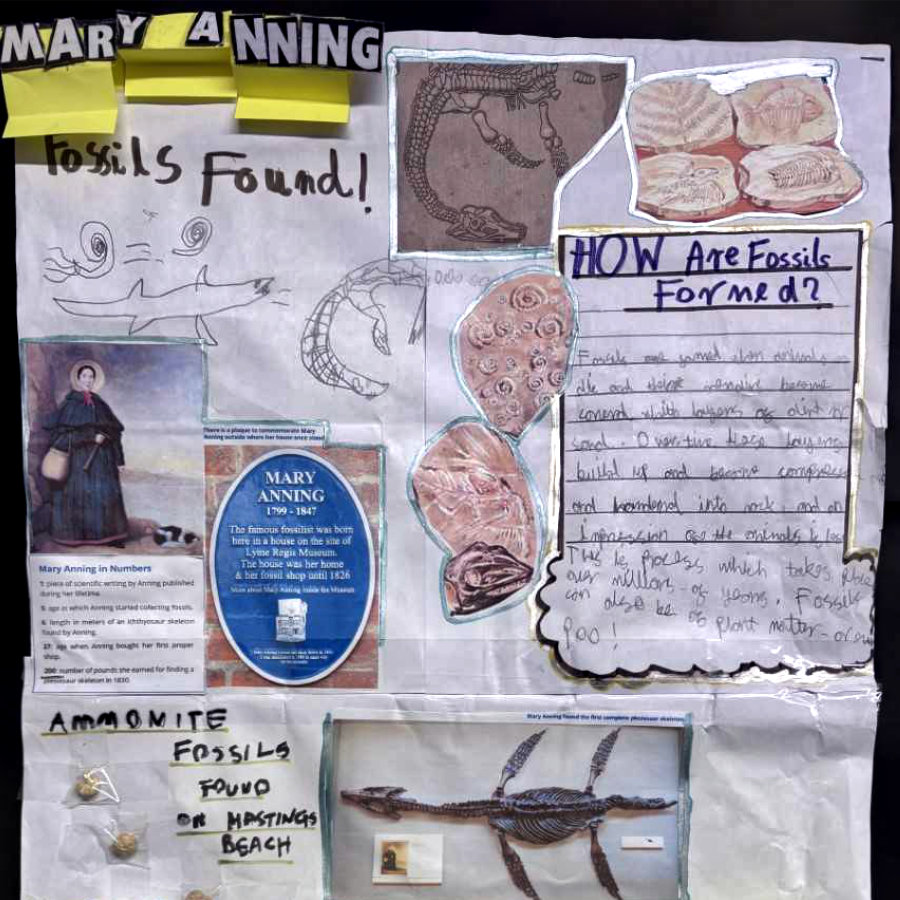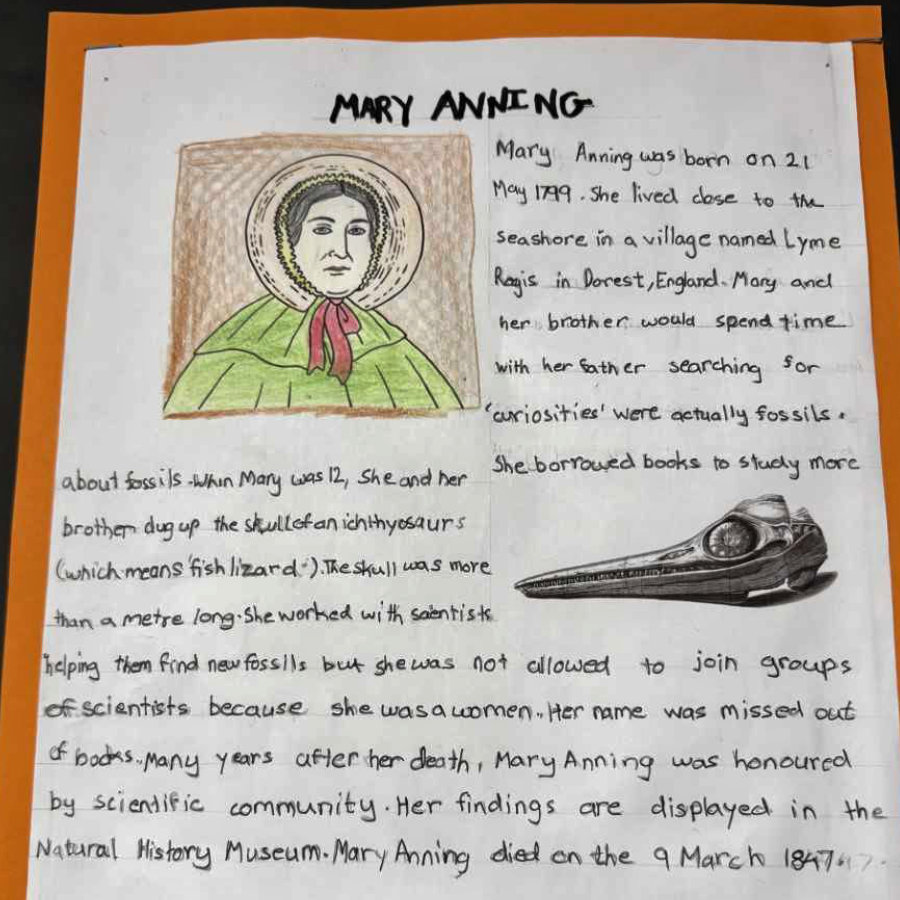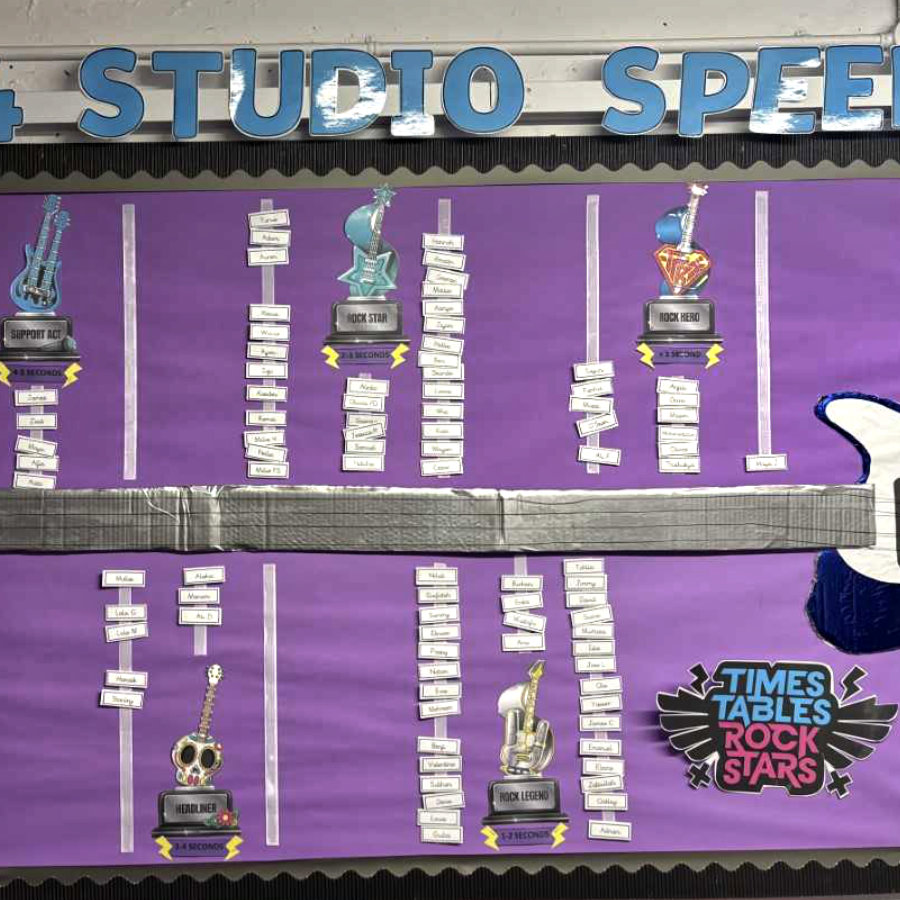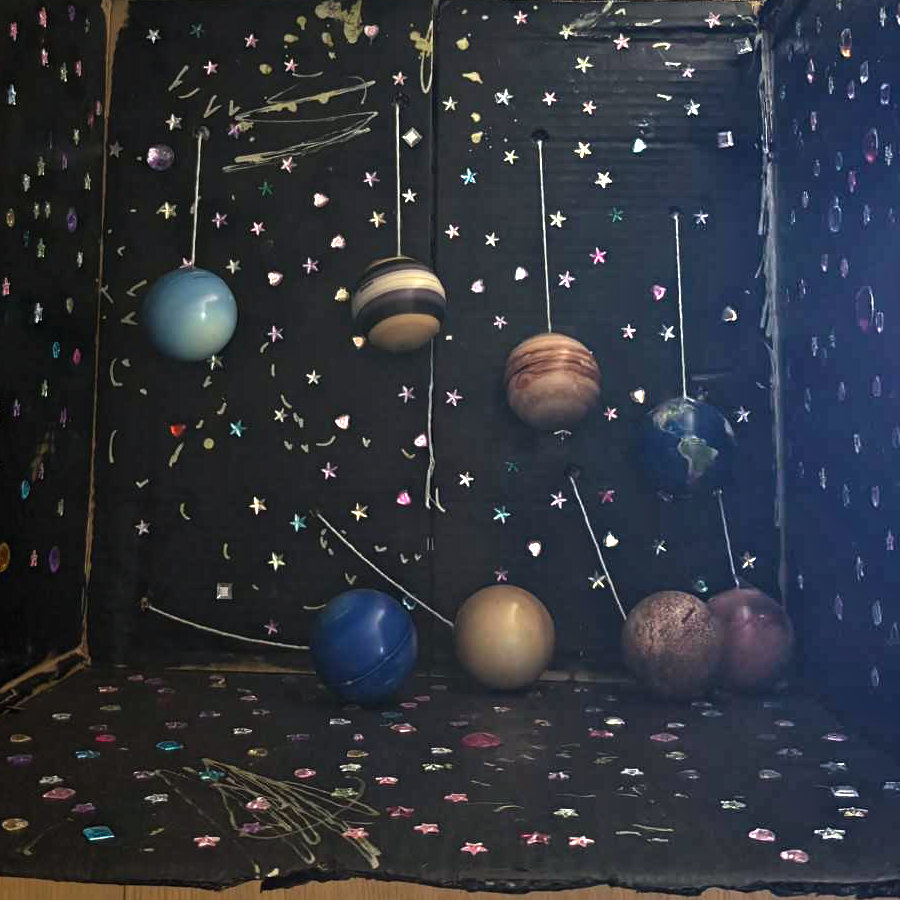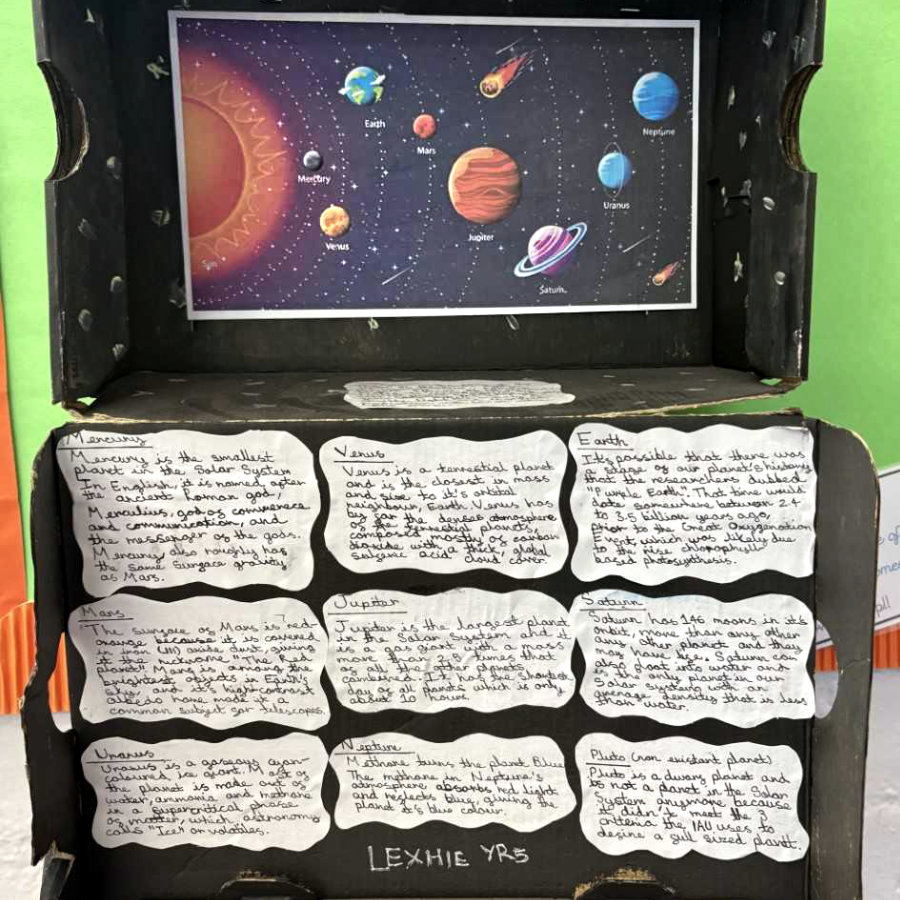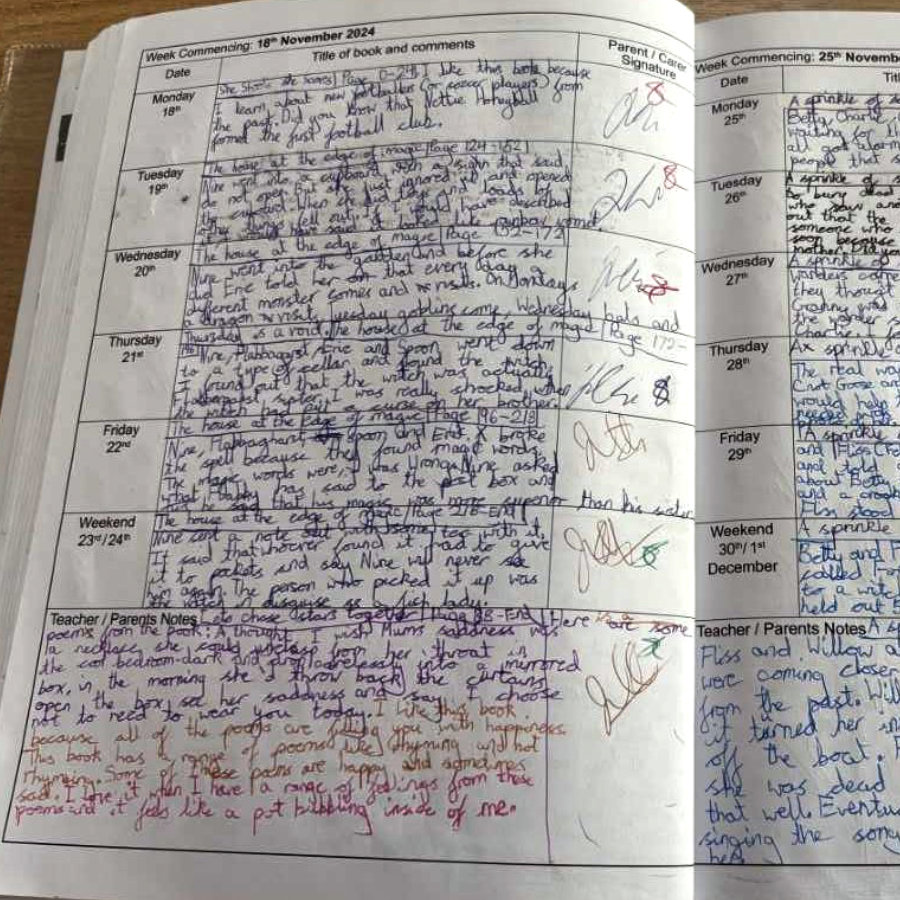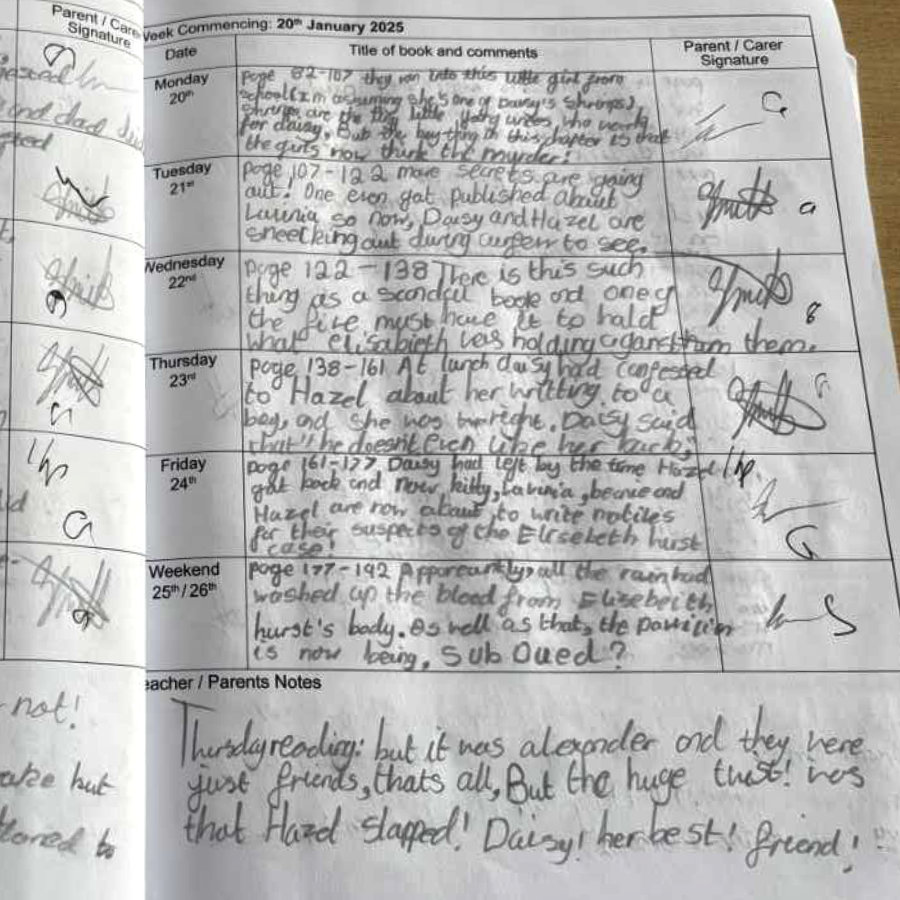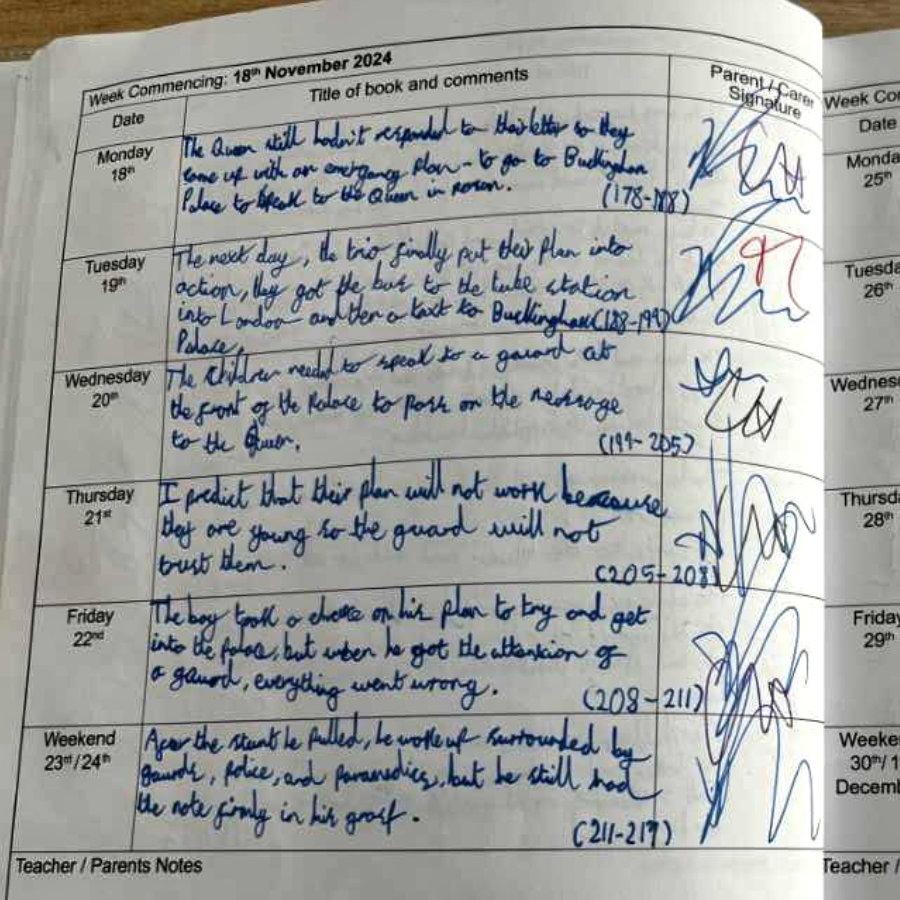Heathfield Schools' Partnership
ambitious for the future
Homework.
Juniors.
Homework
Reading
Books are a huge part of life at our school.
When it comes to reading, we believe these four values are important:
- Reading is for pleasure
- Reading can make you smarter
- Reading improves your imagination
- Reading is fun and entertaining
All children are expected to read every night and record their reading in their reading diary. Wherever possible, it is best for the children to read aloud to an adult.
As well as recording the title of the book and the pages they have read, children should also write a comment about the book. This maybe a comment about what has happened in the story, who their favourite or least favourite character is and why, what they predict might happen next in the story or the definition of some new vocabulary.
Parents/carers should sign their child's reading diary to show that reading has been completed. These are checked by class teachers every morning and are also used to support home/school communication: parents and teachers use the diaries to write messages in.
Times Tables
At Heathfield Junior School, we know the importance of children being able to recall their times tables fluently. This is essential in order for them to become a successful mathematician. It is a National Curriculum expectation that all children know their times tables to 12 x 12 by the end of Year 4. Therefore, we regularly practise times tables at school.
We recommend children learn their times tables in the following order: 2s, 5s, 10s, 3s, 4s, 9s, 11s, 6s, 7s, 8s and 12s.
Please ensure that your child logs on daily to Times Table Rockstars (TTRS) at home and practises their times tables.
Times Tables - Top Tips
- Practise for 15 minutes a day - short and often is the best way to remember all your tables
- Use the times tables in your journal to look at, learn, cover, and say out loud
- Get your parents, friends, or other adults to test you regularly.
Project Homework
Each half term, we will be sending home a project linked to class learning. The children will need to research the chosen topic and choose a creative way to present their findings. For example, models, booklets, posters or PowerPoint presentations. Parents and carers will then be invited into school to share and celebrate the finished projects together with their children. This is not only a great celebratory moment for the children, but also an opportunity to put their oracy skills to work.
